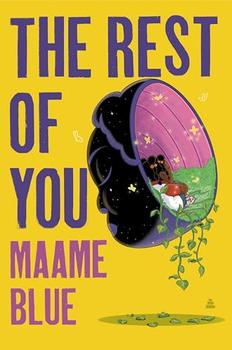Summary | Excerpt | Reviews | Readalikes | Genres & Themes | Author Bio

I told her it was a fine idea, but I would pay her and the women she brought a hundred dollars each for six hours' work. At the end of the six hours, I wanted the job done. And if it wasn't, I told her, it would be done, anyway.
"Mr. Noonan, that's far too much," she said.
"Maybe and maybe not, but it's what I'm paying," I said. "Will you do it?"
She said she would, of course she would.
Perhaps predictably, I found myself going through the house on the evening before they came, doing a pre-cleaning inspection. I guess I didn't want the women (two of whom would be complete strangers to me) finding anything that would embarrass them or me: a pair of Johanna's silk panties stuffed down behind the sofa cushions, perhaps ("We are often overcome on the sofa, Michael," she said to me once, "have you noticed?"), or beer cans under the loveseat on the sunporch, maybe even an unflushed toilet. In truth, I can't tell you any one thing I was looking for; that sense of operating in a dream still held firm control over my mind. The clearest thoughts I had during those days were either about the end of the novel I was writing (the psychotic killer had lured my heroine to a high-rise building and meant to push her off the roof) or about the Norco Home Pregnancy Test Jo had bought on the day she died. Sinus prescription, she had said. Piece of fish for supper, she had said. And her eyes had shown me nothing else I needed to look at twice.
Near the end of my "pre-cleaning," I looked under our bed and saw an open paperback on Jo's side. She hadn't been dead long, but few household lands are so dusty as the Kingdom of Underbed, and the lightgray coating I saw on the book when I brought it out made me think of Johanna's face and hands in her coffin -- Jo in the Kingdom of Underground. Did it get dusty inside a coffin? Surely not, but --
I pushed the thought away. It pretended to go, but all day long it kept creeping back, like Tolstoy's white bear.
Johanna and I had both been English majors at the University of Maine, and like many others, I reckon, we fell in love to the sound of Shakespeare and the Tilbury Town cynicism of Edwin Arlington Robinson. Yet the writer who had bound us closest together was no college-friendly poet or essayist but W. Somerset Maugham, that elderly globetrotting novelist-playwright with the reptile's face (always obscured by cigarette smoke in his photographs, it seems) and the romantic's heart. So it did not surprise me much to find that the book under the bed was The Moon and Sixpence. I had read it myself as a late teenager, not once but twice, identifying passionately with the character of Charles Strickland. (It was writing I wanted to do in the South Seas, of course, not painting.)
She had been using a playing card from some defunct deck as her place-marker, and as I opened the book, I thought of something she had said when I was first getting to know her. In Twentieth-Century British Lit, this had been, probably in 1980. Johanna Arlen had been a fiery little sophomore. I was a senior, picking up the Twentieth-Century Brits simply because I had time on my hands that last semester. "A hundred years from now," she had said, "the shame of the mid-twentieth-century literary critics will be that they embraced Lawrence and ignored Maugham." This was greeted with contemptuously good-natured laughter (they all knew Women in Love was one of the greatest damn books ever written), but I didn't laugh. I fell in love.
The playing card marked pages 102 and 103 -- Dirk Stroeve has just discovered that his wife has left him for Strickland, Maugham's version of Paul Gauguin. The narrator tries to buck Stroeve up. My dear fellow, don't be unhappy. She'll come back...
"Easy for you to say," I murmured to the room which now belonged just to me.
Copyright © 1998 by Stephen King




It was one of the worst speeches I ever heard ... when a simple apology was all that was required.
Click Here to find out who said this, as well as discovering other famous literary quotes!
Your guide toexceptional books
BookBrowse seeks out and recommends the best in contemporary fiction and nonfiction—books that not only engage and entertain but also deepen our understanding of ourselves and the world around us.